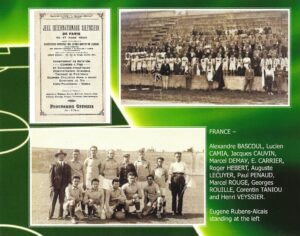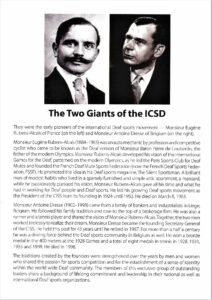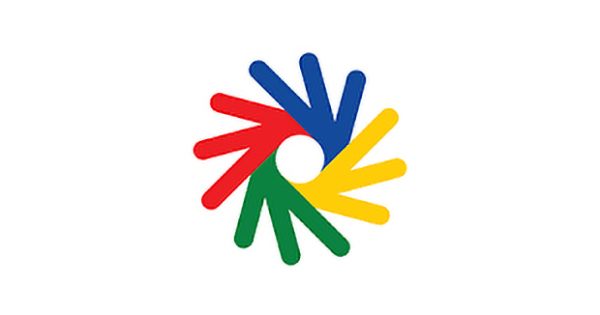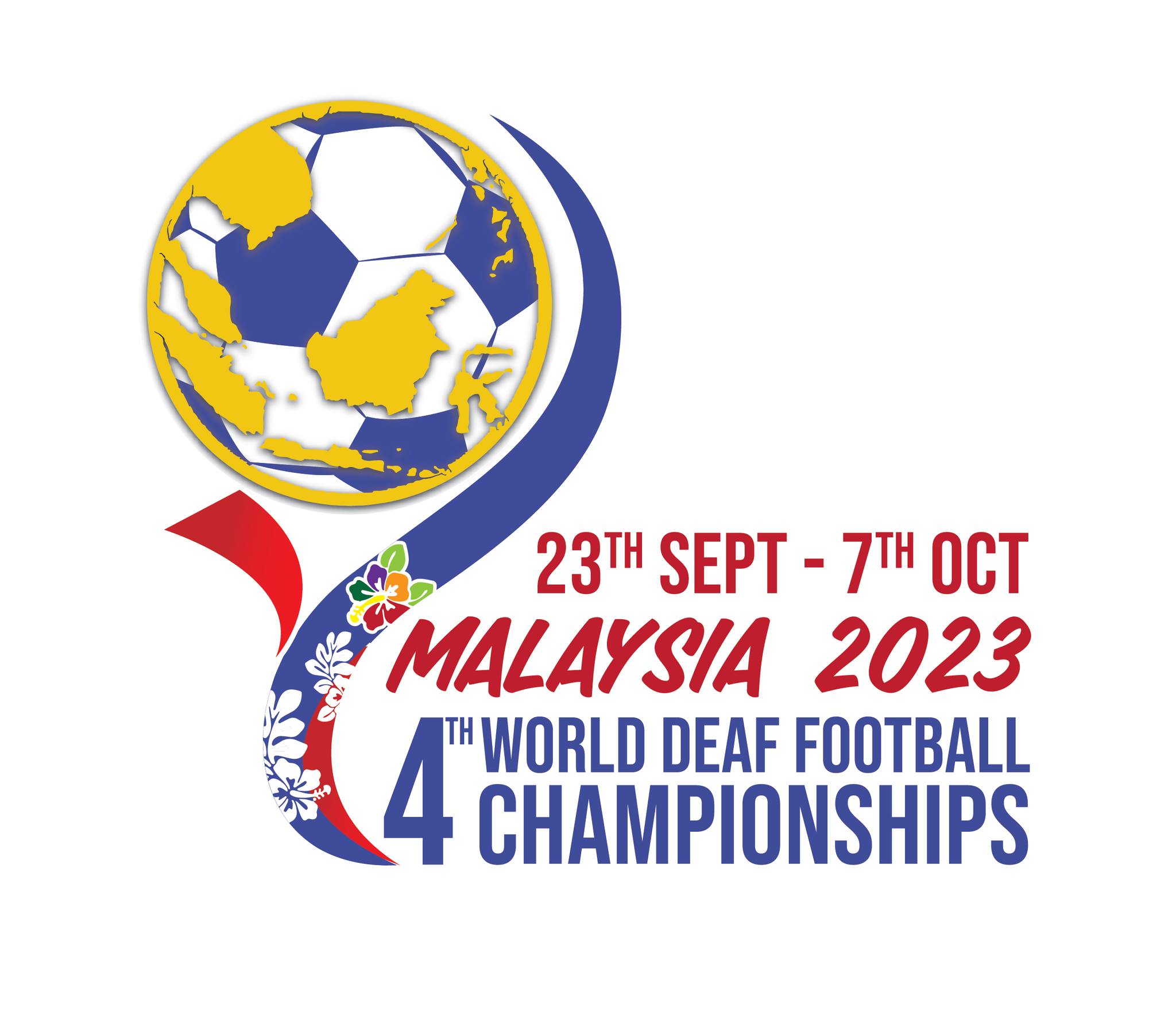CISS & Deaflympics
On October 31, 1926, the first CISS Congress was held in Brussels, where the CISS Statutes were adopted.
And on August 18–26, 1928, the second International Deaf Games took place, which were even more successful than the first. This event served as a signal for CISS to accelerate growth and development.
At the Fifth Congress in Copenhagen in August 1933, it was decided to organize a commission on world records to record the achievements of the best deaf athletes.
CISS existed for a long time without an official symbol, until a competition was announced in the mid-1930s, the winner of which was a drawing by Fernand Chante. Officially, this image became the symbol of the CISS in 1937, when the VII Congress in Budapest decided to do so. The blue-green flag of the CISS first appeared at the opening ceremony of the 5th International Games in Stockholm in 1939. By the way, for the first time these Games were honored by the presence of a person of royal blood – Prince Gustav Adolf of Sweden.
Due to the Second World War, the CISS had to suspend its hectic activities for a while. At the first post-war Congress in 1947 in Paris, it was decided to hold the VI International Games of the Deaf in Copenhagen in August 1949. And at the Congress in Denmark, the Austrian Heinz Prochaska put forward the idea of holding the Winter Games of the Deaf as well.
The initiative found active supporters among the delegates of the Danish Congress. The first Winter Games were held on January 26-30, 1949 in the town of Seefeld (Austria) and brought together 33 participants from 5 countries.
On May 12, 1951, in conjunction with the XI CISS Congress in Lausanne, Switzerland, the International Olympic Committee hosted a reception at the “Olympic Villa” in honor of the CISS. This was CISS’ first contact with a top international sports organization. The IOC thus appreciated the outstanding sporting and organizational achievements of the CISS.
At the next Congress, held in 1953 in Brussels, Rubens-Ahlke, after many years of conscientious and selfless work, left the post of CISS President, giving way to the Swede Oscar Ryden.
- Raiden was replaced in 1955 by the Dane J.P. Nielsen.
On June 15, 1955, the International Olympic Committee (IOC) announced the recognition of the CISS as “an international federation with Olympic principles”. And during the XIV CISS Congress in Milan, it was decided to finalize the ideological part of the organization’s charter in accordance with the concept of the “Olympic spirit”. However, the CISS does not use the word “Olympic” nor the well-known Olympic symbol of the five rings.
In 1966, the IOC Executive Board decided to award the CISS for its service to sport with the Olympic Cup, established in 1906 by Baron de Coubertin. On March 23, 1968, an award ceremony was held in Lausanne, during which CISS representatives were presented with an award and a commemorative diploma.
In 1967, Antoine Dries, who had been CISS Secretary General for 43(!) years, decided to end his career in this capacity. The Congress held in Berchtesgaden (Germany) in the same year entrusted this responsible position to the Swede Oswald Dahlgren, who had helped Dries in his work for many years. At the same Congress, it was decided to rename the International Games of the Deaf (Jeux Internationaux Silencieux in French) into the World Games of the Deaf to emphasize the planetary scale of the event.
In 1971, the CISS was headed by American Gerald Jordan.
In 1974 CISS celebrated its 50th anniversary. On this occasion, magnificent celebrations were held in Paris, where the organization had once been born. Members of the CISS and friends of the organization visited the grave of Rubens-Alke.
In 1974, the Italian Sports Federation for the Deaf provided space in its office for the CISS Museum.
In 1981, the President of the IOC, Juan Antonio Samaranch, honored the first visit to the World Deaf Games. He personally attended the opening ceremony and watched the preliminary competition. At the Congress, which took place a few days before the Games, it was decided by an overwhelming majority to use one language for international correspondence – English (previously CISS had another official language – French). Nevertheless, the abbreviation CISS remained French – as a tribute to tradition.








